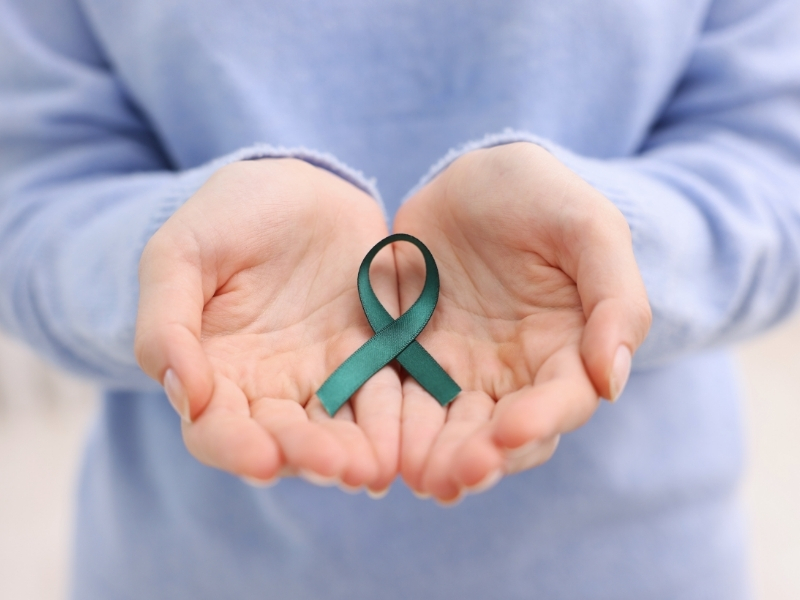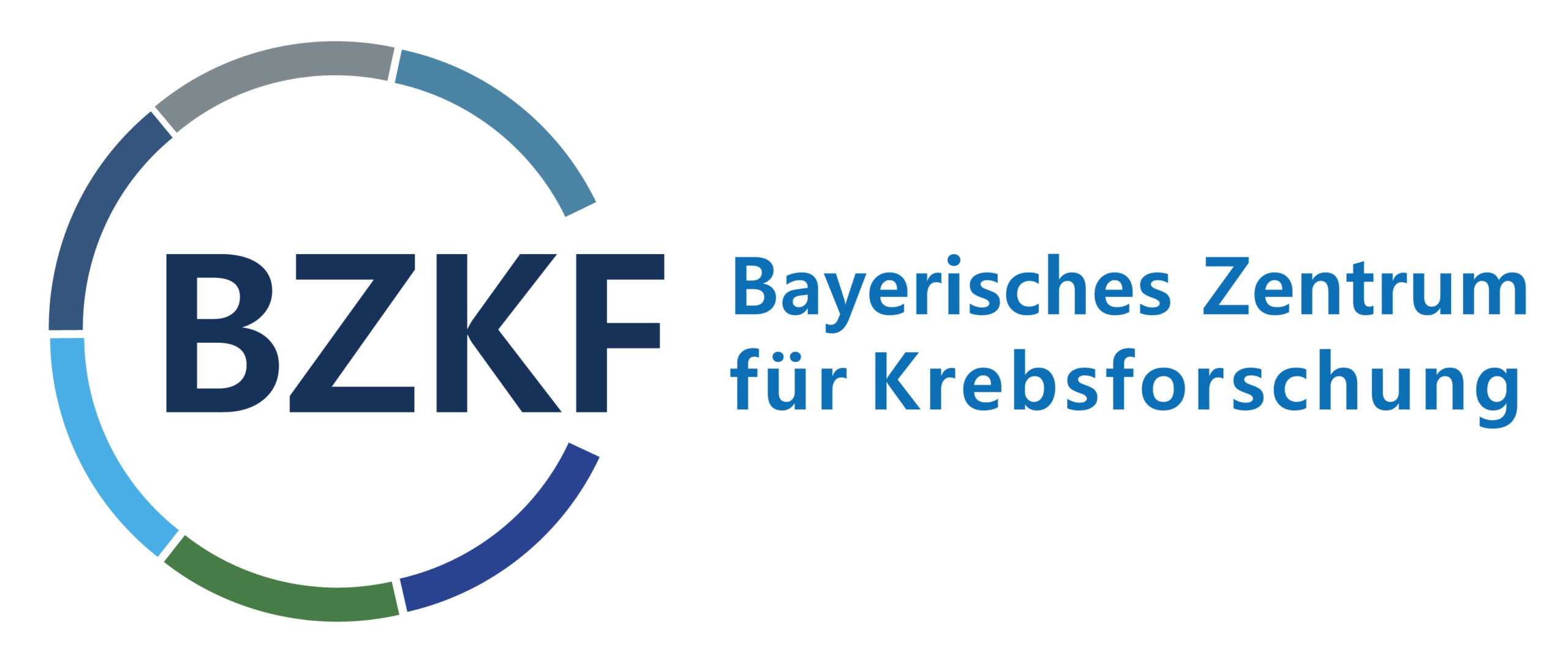Cancer changes your life - not only during treatment, but often long after. Many patients and their relatives are faced with a multitude of questions: What does cancer aftercare mean and how does it work? What long-term and late effects can occur? Where can I find nursing support at home? What social and legal entitlements do I have? How can I get in touch with other people affected?
On this website you will find answers to frequently asked questions about life with and after cancer. We offer you easy-to-understand information, helpful links to advice centers, psychosocial support services and self-help groups as well as guidance on topics such as palliative care and nursing care.
Our aim is to give you security, show you ways forward and support you in finding your own way of dealing with the disease - during acute treatment and beyond.
Medical aftercare begins after cancer treatment. The aftercare program includes regular examinations and, if necessary, further therapies. During aftercare, you can also seek advice on the psychosocial and psychological consequences of the disease and therapy - take advantage of the numerous counseling services!
Aftercare enables doctors to
- monitor the success of the treatment
- diagnose relapses at an early stage and take action against them
- recognize and treat the consequences of the disease and treatment
- recognize and treat a second, independent cancer at an early stage
- Support in everyday life
As a cancer patient, it is important to attend medical follow-up care. If you have symptoms, don't wait until your next appointment. It is better to see your doctor straight away.
Who carries out cancer aftercare?
General practitioners and dermatologists play a central role in aftercare. They are the contact person on site, where all important findings and treatment recommendations come together. Patients can also turn to their GP practice with other, non-cancer-related health issues.
Specialists in private practice: For oncological follow-up care, you should look for a practice that specializes in the (follow-up) treatment and care of cancer patients.
Hospitals: Outpatient clinics at university hospitals are often also responsible for follow-up care, especially if the treatment was part of a clinical trial. It is also possible for a hospital and a specialist in private practice to share the aftercare.
How does oncological aftercare work?
This is how aftercare usually works:
- detailed discussions with the doctors
- Thorough physical examinations
- further examinations (e.g. blood tests, imaging or endoscopic procedures)
The aftercare plan is individually designed by the treatment team according to
- the type of cancer
- the individual course of the disease
- the side effects and possible late effects of the disease
- the patient's general state of health
It makes sense to keep a separate aftercare record: This is where doctors can record all follow-up appointments, important examinations and treatment measures as well as the most important results. The aftercare record serves as an overview and helps you to structure the data well. Order a free aftercare pass from German Cancer Aid here.
Which examinations are carried out during oncological aftercare?
The aim of cancer aftercare is to detect relapses at an early stage. This can happen if there are still cancer cells in the body despite treatment. The disease could then break out again. Oncological aftercare aims to detect these cases before they cause symptoms so that they can be treated at an early stage.
In the early stages, relatively frequent check-ups are required. However, the intervals between these appointments become longer and longer, especially if there are no signs of the disease recurring. Your personal wishes and expectations are also important here.
In the patient guidelines of the Oncology guideline program describe the type and intervals of the recommended examinations for each type of cancer.
Planning for home care begins in hospital: staff from the care advice and social services departments clarify what care is necessary and possible at home, which care services could take over and which aids are required. They also help with applications for financial support for care and clarify other financial and social law issues.
Important: this advisory service is only provided for inpatients or day patients in your own hospital. The advice centers of the BZKF university hospitals are linked here as examples:
Augsburg (University Hospital): Social counseling service
Erlangen (University Hospital): Clinical social service
Munich (LMU Hospital): Social counseling service
Munich (TUM Hospital): Social services
Regensburg (University Hospital): Social counseling and transition
Würzburg (University Hospital): Social services and care advice
The care support centers in Bavaria also offer free advice on all care-related topics
Cancer therapies can have many long-term and late effects. They affect the quality of life of survivors.
The most common long-term effects are
- Chronic exhaustion (fatigue)
- pain
- sleep disorders
- anxiety
- restricted mobility and
- polyneuropathies
These symptoms can persist for years after treatment. Late effects often only occur years later. They include cardiovascular diseases, damage to the lungs, kidneys or brain, secondary cancers and infertility. Memory and concentration disorders, such as the so-called "chemobrain", and psychosocial problems are also possible. There are also social and professional consequences such as job loss or financial problems.
Regular follow-up care is important in order to recognize and treat these consequences at an early stage.
Find out more about symptoms and late effects on the pages of the Cancer Information Service.
Social law aspects of cancer survivorship
After acute treatment for cancer, a new phase of life begins, which brings with it not only medical and psychological issues, but also social law issues. Topics such as professional reintegration, financial security or dealing with a possible disability come to the fore. Social law benefits and support services play a central role in this phase in order to facilitate the return to a stable everyday life, exercise rights and ensure social participation. Social counseling can offer orientation and support in many aspects.
Return to work and reintegration
The process of returning to work after cancer varies greatly. There are various professional reintegration measures:
- Company integration managementVoluntary, confidential. The aim is to find health promotion solutions together with the employer.
- Gradual reintegration ("Hamburg model")Slow re-entry with reduced working hours. Prescribed by a doctor, agreed with the employer. Entitlement to sickness benefit or transitional allowance remains.
- Benefits for participation in working lifeSupport through retraining, technical assistance or training if, for example, the old occupation is no longer possible.
Continued payment of wages and sick pay
Employees receive sick pay from their employer for the first 6 weeks. From the 7th week onwards, the statutory health insurance fund pays sick pay, which amounts to 70% of the gross wage or a maximum of 90% of the net wage. The prerequisite is continuous sick leave. Sickness benefit ends after 78 weeks and may be followed by unemployment benefit I. Privately insured persons have the option of taking out additional "daily sickness allowance insurance".
Rehabilitation
Oncological rehabilitation ("Reha") is a central social law offer. Oncology patients can apply for up to three rehabs within the first two years after the end of treatment (follow-up treatment, rehab, consolidation rehab). The purpose of rehab is to stabilize the patient's physical condition, help them deal with their illness psychologically and reintegrate them into working life. The costs are usually covered by pension insurance or statutory health insurance.
Further information on oncological rehab can be found on the German Pension Insurance website
Reduced earning capacity pension
If you can only work to a limited extent or not at all after a cancer illness, you may be eligible for a reduced earning capacity pension (EMR). This is granted for a limited period and extended if necessary. Prerequisites: less than 6 or 3 hours of daily working capacity (partial/full EMR) and have been insured for at least five years and have paid compulsory contributions for three years in the last five years. The application for a reduced earning capacity pension is submitted to the German Pension Insurance. In certain cases, basic income support can also be applied for. A certain amount of additional income is possible.
Further information on reduced earning capacity pension can be found on the German Pension Insurance website
Severe disability
If you have cancer, you can apply for a severely disabled person's pass. A degree of disability (GdB) of 50 or more is often recognized for oncological diagnoses. This is associated with compensation for disadvantages, e.g. protection against dismissal, additional leave or tax benefits. The certificate is usually limited in time (up to 5 years). The application is made via the pension office. Important: enclose a doctor's letter with diagnosis.
Online application for determination of a disability
Exemption from co-payment
If you have cancer, you may have to make co-payments, e.g. for medication or hospital stays. If you reach the limit (1% in the case of chronic illness, otherwise 2% of gross income), no further co-payments will be made in the calendar year. The health insurance companies do not automatically inform you when the limit has been reached. Original receipts must be collected and an application with proof of income submitted to the health insurance company. A doctor's certificate is also required for the 1% limit. By the way: Many health insurance companies offer an online co-payment calculator.
Detailed co-payment regulations (pdf from the Federal Ministry of Health)
Entitlements during your studies
You may also be entitled to social security benefits during your studies if you have cancer. These include, for example, an extension of BAföG in the event of a delay in studies due to illness, vacation semesters and citizen's allowance or social welfare.
Students can also apply for a severely disabled person's pass, which is associated with compensation for disadvantages during their studies. This includes, for example Adjusted processing times for examinations, child benefit beyond the age of 25 and (barrier-free) places in halls of residence.
The social counseling services of the Studierendenwerke can help with these matters.
Self-determination (health care proxy, care directive, living will)
With a health care proxy, care directive and living will, you can ensure that your own wishes are respected in the event of illness. With a health care proxy, you appoint a trusted person to make legal decisions on your behalf - without judicial control. A care directive contains wishes in the event that a court orders and controls legal care. A living will regulates medical measures.
Contact points
- Augsburg (CCCA): Support & accompaniment services
- Erlangen (University Hospital): Clinical social services
- Munich (CCC): The patient house at the CCC Munich
- Regensburg (Regensburg University Hospital): Social counseling and transition
- Würzburg (University Hospital): Social services and care counseling
The Bavarian Cancer Society also offers Psychosocial cancer counseling in various cities in Bavaria. Non-profit organizations and associations also offer social counselling services. These include, for example, the Paritätische Wohlfahrtsverbandthe Caritas, the Diaconia, the Social Association VdK, the German Social Association and the Workers' Welfare Association (AWO). There are also the specialist advice centers of the Supplementary independent participation advice.
What is palliative care?
The term "palliative" comes from the Latin word pallium, which means "cloak". This image describes the aim of palliative medicine well: it wants to surround seriously ill people and their relatives like a protective cloak - with medical, nursing and human care.
Palliative medicine does not focus on healing, but on quality of life. The aim is to maintain or improve enjoyment of life and independence for as long and as well as possible despite a serious, often incurable illness. The focus is not just on the illness, but on the person with all their needs - physical, mental, social and spiritual. Palliative care can be provided both in hospital and at home.
A modern understanding: palliative care does not begin at the end of life
There is still a misconception that palliative care is only relevant in the last days of life. However, it can begin much earlier - in parallel with the treatment of a serious illness, such as cancer. The BZKF is committed to integrating palliative care concepts into treatment at an early stage and in parallel - at the patient's request.
What does palliative medicine do?
The focus is on alleviating stressful symptoms such as
- pain
- shortness of breath
- nausea
- anxiety
- inner restlessness
The aim is to noticeably improve quality of life - regardless of how much time is left to live.
This includes individually tailored medical and nursing measures as well as comprehensive psychosocial care. Psychologists, chaplains and social workers accompany patients and their relatives through difficult phases of life, during emotional stress, in family conflicts or with questions about saying goodbye and dying.
Palliative care services
Inpatient care
People with advanced, incurable illnesses and complex complaints are cared for on specialized palliative care wards. The palliative medicine service (PMD) can also be called in on other hospital wards. A specialized team of doctors and nursing staff work together with the treatment team to develop individual treatment concepts - with the aim of improving quality of life in the long term.
Outpatient care
There are also a variety of options outside the hospital:
- Specialized outpatient palliative care (SAPV) for care at home
- Care through university outpatient clinics
- Services in inpatient hospices or care facilities
This means that patients can also receive good care and support in their familiar surroundings.
Augsburg: Clinic for palliative medicine
Erlangen: Palliative medicine department
Regensburg: Center for Palliative Medicine
Munich (LMU): Clinic and Polyclinic for Palliative Medicine
Munich (TUM): Palliative Medicine
Würzburg: Interdisciplinary Center for Palliative Medicine
You will find further competent local contacts for socio-legal aspects: The Psychosocial Cancer Counseling Centers in Bavaria and the consultation hour NachsorgePLUS will support you individually and confidentially:
Further information can be found on the pages of the Psychosocial Cancer Counseling Centers of the Bavarian Cancer Society
Self-help groups and initiatives offer cancer patients valuable support on their journey through the disease. In these groups, those affected and their relatives find exchange, understanding and practical help, often supported by people who have experience with cancer themselves. The groups help to overcome fears, give courage and convey the feeling of not being alone. In addition to face-to-face meetings, there are also digital offerings that create a protected space for discussions and information.
Participating in a self-help group can improve quality of life, boost self-confidence and help people cope better with everyday life with the illness. Many groups also offer advice on social and legal issues as well as special programs for different age groups and types of cancer.
Find strength. Live healthy. Shape everyday life.
After cancer treatment, a new phase of life begins: regaining strength and actively shaping a healthy lifestyle. We would like to support you in getting healthy after treatment and living a preventative lifestyle. Whether nutrition, exercise, psychosocial support, naturopathic measures or pain therapy - here you will find well-founded information and offers to accompany and strengthen you on your way.








